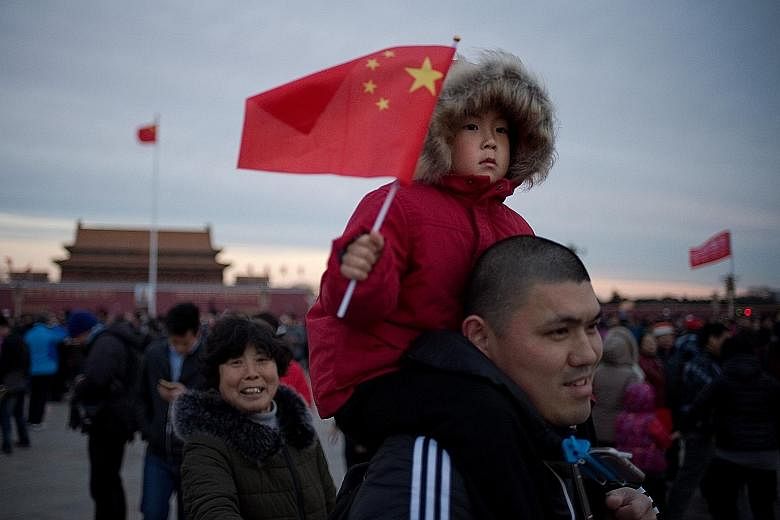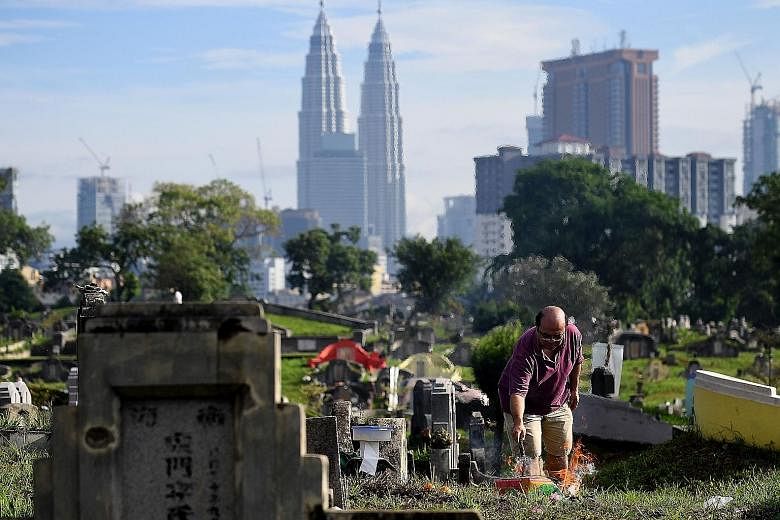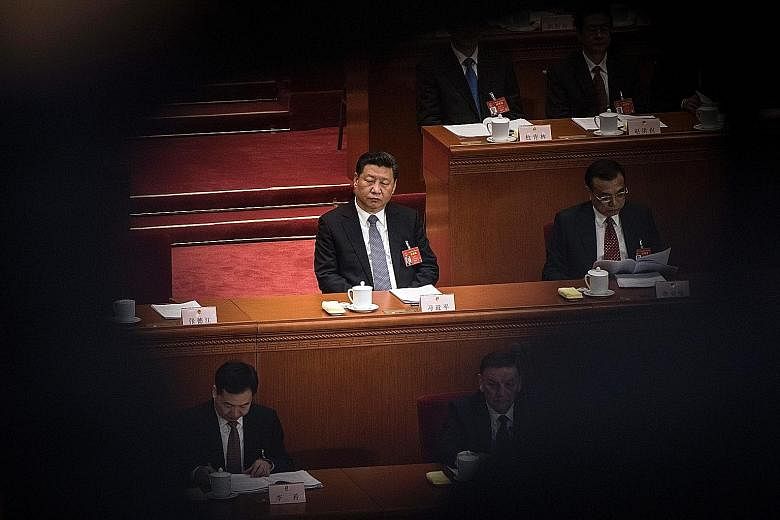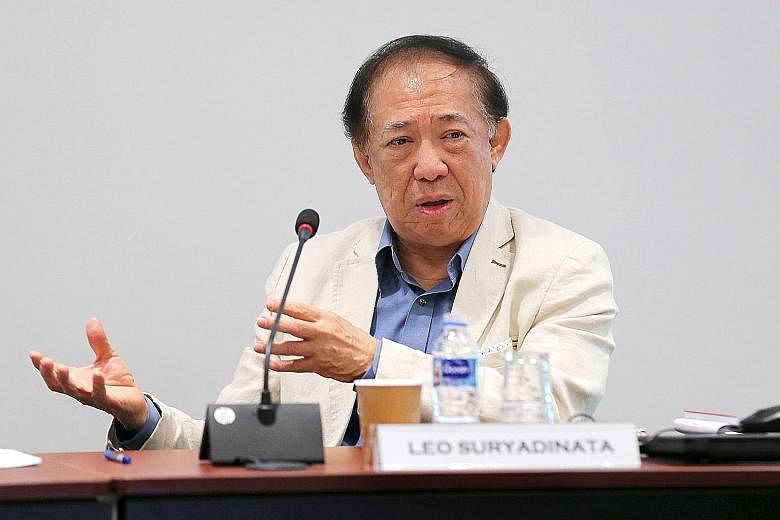When Chinese President Xi Jinping announced a new economic strategy - One Belt, One Road (Obor) - in late 2013, he did so hot on the heels of a big change in Beijing's policy towards all foreigners of Chinese descent.
From 2000, Beijing began blurring its distinction between huaqiao, or mainland Chinese living overseas, and huaren, or those of Chinese origin who were born or settled overseas, by lumping both together as one big China family.
This recent blurring is a source of pride for some huaren, especially the elderly among them, who like the thought of being in the fold of a now-strong China.
To such huaren, Jakarta-born Singaporean academic Leo Suryadinata says: "I think they should not dream and think, 'Wow, China is there to protect us immediately'. The ethnic Chinese overseas can be safe only if they know how to protect themselves."
Beijing's apparent change of heart towards huaren - whom it once advised to blend in well with natives of their chosen domiciles - is so that it can rely on, and sometimes rope in, huaren to help open doors to new business, social and geopolitical opportunities.
Mr Xi said as much on June 7, 2014, at the Seventh Conference of the World Federation of Huaqiao Huaren Associations: "There are tens of millions of Chinese overseas compatriots (haiwai qiaobao)... they did not forget their fatherland, they did not forget their ancestral province, they did not forget that in their body there is Chinese blood, they have enthusiastically supported the Chinese revolution, China's construction and the reform of China."
With that speech, notes Dr Suryadinata, Mr Xi blurred further the line between huaqiao and huaren by including the latter in his definition of the sons and daughters of China (Zhonghua ernu).
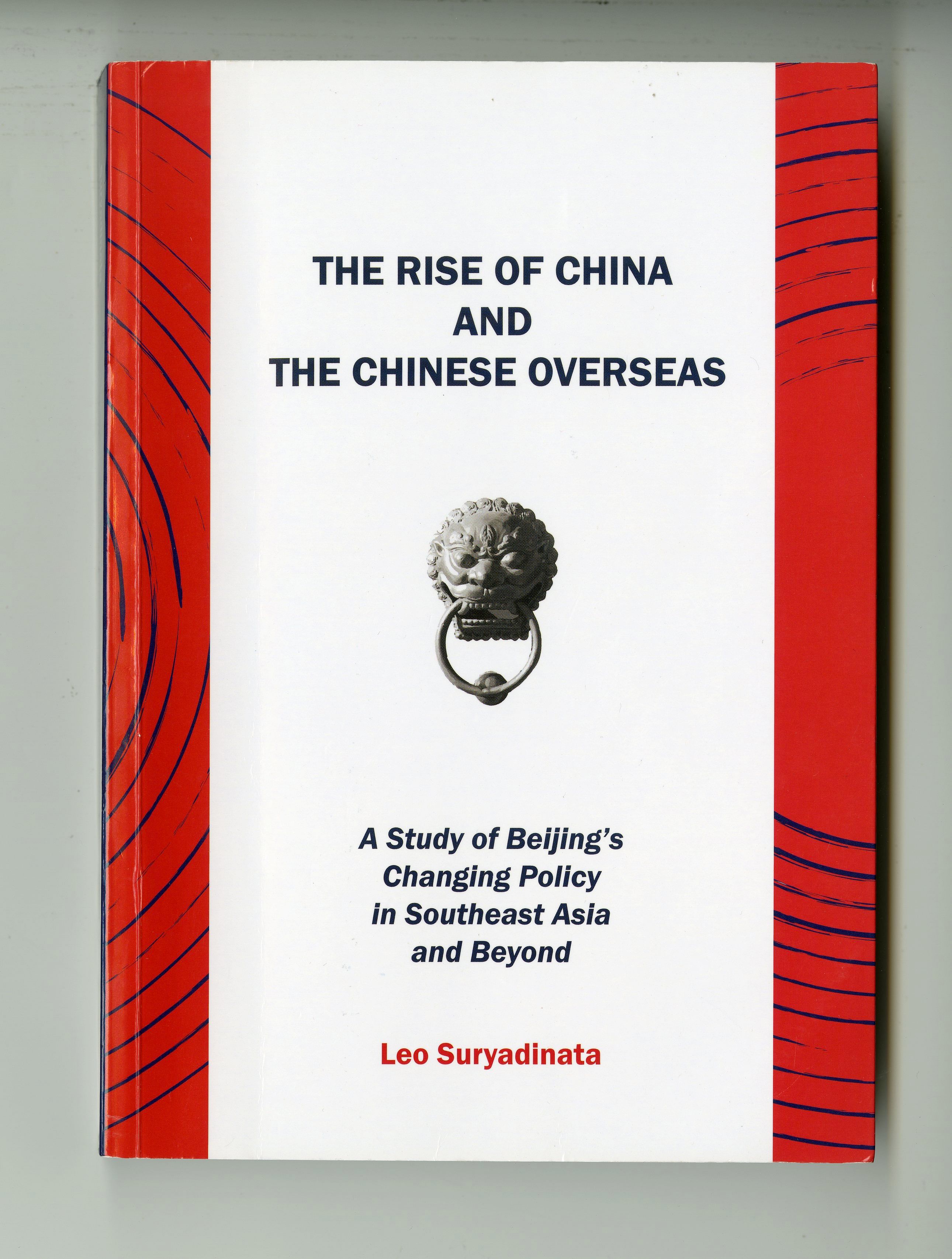
In 2015, Beijing's Overseas Chinese Affairs Office (OCAO) reckoned there were 60 million Chinese overseas, while Taiwan's Overseas Chinese Affairs Commission put the figure closer to 42 million.
In 2014, OCAO chairman Qiu Yuanping ruffled feathers in Indonesia when she pledged to its Chinese that China would always back them strongly as they were of Chinese descent.
Around that time, another Beijing official urged young Indonesian Chinese to study the Chinese language and culture.
The rub is, as Dr Suryadinata argues in his compelling new book, The Rise Of China And The Chinese Overseas, such exhortations might stoke long-burning embers of suspicion and resentment among indigenous peoples of the Chinese in their midst, no thanks to the latter's enterprise, wealth and economic dominance.
Dr Suryadinata, 76, is the world's authority on the Chinese in Indonesia. A visiting senior fellow at ISEAS - Yusof Ishak Institute, a Singapore think-tank, he was the director of Nanyang Technological University's Chinese Heritage Centre from 2006 to 2013, and teaches the politics and government of South-east Asia at the S. Rajaratnam School of International Studies.
Crucially, since the 1970s, he has been studying Beijing's evolving policy towards foreigners of Chinese descent, and he stresses that the evolution of this policy matters because it affects the extent to which those of Chinese descent can integrate, if not assimilate, in overseas lands.
China's perhaps inadvertent stoking of long and deep suspicions, he asserts, might cause tempers to flare tragically again, with memories of the May 1998 anti-Chinese riots and mass rapes of Chinese women in Indonesia and the 2014 anti-Chinese riots in Vietnam still fresh in the minds of many in South-east Asia.
Says Dr Suryadinata: "My argument is that when the economy is really bad, they are going to get back at the Chinese again. Because the economic problems will not go away, you know; they are still with us, especially in the developing countries of South-east Asia."
CHARM OFFENSIVE RATTLES REGION
He notes how Beijing's current charm offensive directed at, among others, the Chinese of South-east Asia rattles the region because its nation-building is nascent, at best.
As a cautionary tale, he cites the Malaysian government's chastising in 2015 of Mr Huang Huikang, China's envoy to Malaysia, after he spoke out against some ultra-nationalistic Malays who threatened the Chinese traders of Kuala Lumpur's Petaling Street, which had been the epicentre of its bloodiest race riots on May 13, 1969.
Of Malaysian Chinese political parties' support for Mr Huang, Dr Suryadinata says: "Perhaps it's unwise because, although one can understand why they did it, being squeezed by the Malays and so forth, in the long run, it is perhaps unwise... In terms of political power in Malaysia, it's in the hands of the Malays, and it's recognised in the international community as such. You could change that, but from within, rather than from using an external power, in order to change (things)."
China, he argues further, protects and advances the interests of the Chinese overseas only when the latter's interests coincide and do not conflict with China's own national interests such as national security, territorial integrity, political ideology, and social and economic development.
Even then, he says, the needs and wants of the Chinese overseas are "fifth, sixth or seventh" on China's list of priorities.
He cites three instances which amply bear that out.
One is the anti-Chinese riots that engulfed Indonesia in 1959. At first, China, which was then much weaker than it is today, sent its ships to evacuate anyone of Chinese descent, but it soon realised that doing so would offend Indonesia's anti-colonial forces led by then President Sukarno, to which China had pledged its solidarity. So China halted its evacuations.
The second instance was in 1975, when the Pol Pot-led Khmer Rouge regime slaughtered scores of Cambodians, including ethnic Chinese. As the regime was then China's ally against the Soviet-Vietnam pact, China chose not to save these Chinese, to maintain the alliance.
And third, in 1976, Vietnam tried to transform its society by barring its Chinese community from engaging in retail trade. But Beijing did not retaliate until 1978, when Vietnam invaded China's ally, Cambodia. "It was not for the protection of the Chinese overseas, to begin with," notes Dr Suryadinata.
But surely China would want to look to the Chinese overseas, who know the lay of their lands better than Beijing's insular bureaucrats, to broker Obor deals?
As Dr Suryadinata says of these bureaucrats: "Even if they do understand the situation in other countries, their understanding might be only through the Chinese-speaking community, which might not be the real reflection of the situation."
That, he adds, is because those Chinese overseas who speak Mandarin might be relatively distant from their non-Chinese compatriots. Mandarin-speaking Malaysians, he notes, were not as close to the Malay ground as their non-Mandarin-speaking compatriots. This is so even though some 60,000 Malay children are now studying at Chinese vernacular schools in Malaysia, he says.
But back to the Chinese overseas and how they might help - and profit from helping - China with Obor.
Dr Suryadinata is sceptical that they might make much headway with that. "Even the ethnic Chinese in these countries will not be able to have these projects. They have to be signed between governments, and the Chinese businessmen will come in only at the second or third stage as contractors or sub-contractors - or they might not come in at all," he points out.
The "One Belt" part of Obor, which Mr Xi first mentioned in Kazakhstan on Sept 7, 2013, refers to the revival of the ancient overland Silk Road, with Mr Xi's postmodern vision of it as a belt stretching from China westwards to the countries of Central Asia that, besides Kazakhstan, include Kyrgyzstan, Tajikistan, Turkmenistan and Uzbekistan, and then onto the Middle East. "One Road", then, refers to Mr Xi's vision of a maritime Silk Road encompassing South-east Asia, which he, appropriately enough, proposed in Indonesia on Oct 3, 2013.
"Obor is a grand design with no details," says Dr Suryadinata, noting that even the media in China refer to it in the vaguest ways. "If you want to talk about whether or not Obor will be successful, how do you measure its success or failure?"
AMBIGUITY OVER OBOR'S AIMS
He notes that the continuing ambiguity over Obor's ambit and aims could also be partly because it is somewhat controversial: It has shades of ancient China's tributary system - and no former tributary state wants to be reminded of that.
He adds: "The Chinese continue to say that this is a win-win situation, for the mutual benefit of all. However, it is also true that this was suggested by Beijing, without consulting other countries."
The one bright spot, he says, is that, thanks to globalisation, younger Chinese overseas are building more bridges with the non-Chinese everywhere than their elders did - but still not as "intensively or extensively" as to make much of an impact, he notes.
"Because of that," he says, "it is the responsibility of governments and intellectuals to make the situation better. And we also hope that China would cooperate by making life easier for the Chinese overseas."
